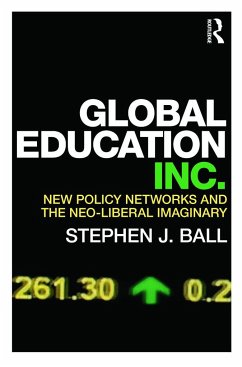Do private and philanthropic solutions to the problems of education signal the end of state education in its 'welfare' form? Education policy is being reformed and re-worked on a global scale. Policies are flowing and converging to produce a singular vision of 'best practice' based on the methods and tenets of the 'neo-liberal imaginary'. Philanthropy, business and the governments are coming together in new networks and sites of policy outside of the framework of the nation state. This book is a first step in recording, mapping and making sense of the most important aspects of these new relations and dynamics of policy. Using the approach of 'policy sociology' and the methods of social network analysis, Global Education Inc. explores the policy activities of edu-businesses, neo-liberal advocacy networks and policy entrepreneurs, and of social enterprises and 'new' philanthropy. It also addresses the ways in which education and education policy itself are now being exported and bought and sold as profitable commodities and how entrenched problems of educational development and educational quality and access are now being addressed through 'market solutions'. That is, by the involvement of private providers in the delivery of educational services, both independently and on behalf of the state. Universities, schools and education services are being acquired as assets by private equity companies. Private storefront schools are being set-up by local entrepreneurs and through franchising arrangements, funded through microloans. School chains funded by philanthropy and run by multi-national edu-businesses are being harnessed to the attempts of developing societies in an attempt to achieve their Millennium Development Goals and provide mass access to basic education. Curriculum materials and pedagogy software and policy ideas such as inspections, leadership, school choice and accountability are being retailed by western 'knowledge companies' and consultants across the globe. This book argues that these new forms of policy and policy-making require new concepts and methods of policy analysis, with chapters including: ¿ Networks, Neo-liberalism and Policy Mobilities New' Philanthropy, Social Capitalism and Education Policy Policy as Profit: Selling and Exporting Policy Money, Meaning and Policy Connections Global Education Inc. is a crucial book that will be of great interest to students of social and education policy and social and education policy analysts and researchers.
Hinweis: Dieser Artikel kann nur an eine deutsche Lieferadresse ausgeliefert werden.
Hinweis: Dieser Artikel kann nur an eine deutsche Lieferadresse ausgeliefert werden.








